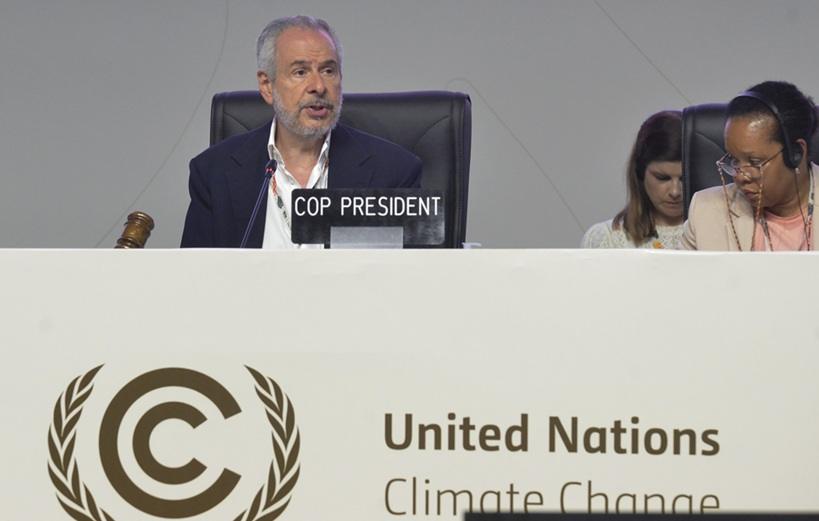A contentious final session to close out the COP30 climate conference in Belém Brazil ended in an agreement that avoided mentioning a shift away from fossil fuels for the second consecutive year, despite strong objections from the EU and UK, and that also failed to include a binding roadmap to end deforestation.
In his closing remarks at the conference, UN Climate Change Executive Secretary Simon Stiell said:
“Many countries wanted to move faster on fossil fuels, finance, and responding to spiraling climate disasters. I understand that frustration, and many of those I share myself. But let’s not ignore how far this COP has moved us forward.”
At the conference, more than 80 countries had been pushing for the COP30 agreement to include explicit references to fossil fuels, including a roadmap to transition away from energy sources such as coal, oil and gas. Notably, 2023’s COP28 conference was the first to ever call for a global transition away from fossil fuels, but this call did was not repeated in last year’s COP29. In the days leading up to the final session, the EU, UK and some Latin American countries led the charge to reintroduce the reference to a roadmap away from fossil fuels, including reportedly threatening to withhold their support from the deal unless it was included.
Adamant objections from countries including Saudi Arabia, Russia and India, however, won out, with the final agreement once again excluding mention of a transition away from fossil fuels. According to Wopke Hoekstra, EU Commissioner for Climate, Net Zero and Clean Growth, “a group of mainly oil-producing countries did everything to block the reference to phasing out fossil fuels in the unanimous agreement.”
Similarly, while more than 90 countries supported the inclusion of a binding roadmap to halt and reverse deforestation, the final text included only the recognition of a need to halt and reverse forest loss, without any mandatory commitments.
In a compromise move on the 2 key issues, the Brazil presidency committed to create science-based roadmaps over the next year on the transition away from fossil fuels and on halting deforestation, although these will be voluntary, and will sit outside of the UN system.
While described by environmental groups and countries pushing for more action on fossil fuels and deforestation as a disappointment, however, the conference resulted in some progress in areas of climate finance, just transition and trade.
Among the key outcomes of the conference was an endorsement of the need to significantly scale climate finance, with targets to mobilize $1.3 trillion annually for developing countries for climate action by 2035, and an expectation for developed countries to triple adaptation finance to $300 billion per year, although the agreement did not include binding mechanisms to enforce these goals.
The agreement also included a decision to adopt a new just transition mechanism, a new initiative aimed at enhancing global cooperation to support workers and communities affected by the energy transition. Additionally, the text of the agreement for the first time highlights trade as a key thematic climate action focus area, alongside mitigation, adaptation and finance, signaling an increasing recognition that decarbonization policies will have increasing trade implications, in areas such as carbon pricing, supply chain standards, and import policies.
Hoekstra added:
“Climate change is a global problem that requires a collective response. And even though last week was chaotic and messy, we moved in the right direction. But make no mistake: the EU had hoped for more. We want to speed things up. Not just for our own benefit, but because the world urgently needs more climate action.”

